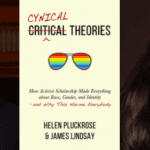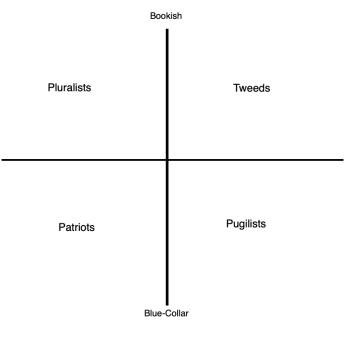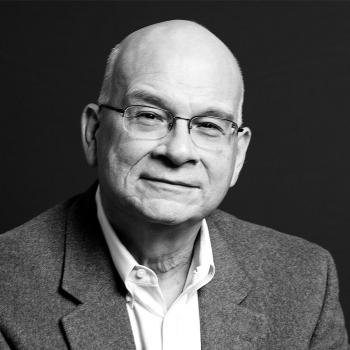 Last week, I read one of the most arresting pieces of writing I’ve come across this year—Joseph Keegin’s new essay at The Point, “Wisdom That Is Woe.” In fact, the piece is so challenging that I haven’t been able to stop thinking about it since.
Last week, I read one of the most arresting pieces of writing I’ve come across this year—Joseph Keegin’s new essay at The Point, “Wisdom That Is Woe.” In fact, the piece is so challenging that I haven’t been able to stop thinking about it since.
Keegin’s essay is a response of sorts to Zena Hitz’s recent book Lost in Thought: The Hidden Pleasures of an Intellectual Life, which happens to be one of the most interesting volumes I’ve read this year. At the risk of oversimplifying its artful and creative argument, Lost in Thought mounts a direct challenge to anyone who would collapse contemplative work into a mere prelude to political action, gainful employment, or any other utilitarian pursuit. The development of one’s “contemplative side,” for lack of a better term, is an end in itself. And for Hitz, it is the cultivation of this distinctly human faculty that lays the groundwork for enduring joy and flourishing, even in the midst of dire personal circumstances.
But what if, Keegin asks, this is only half of the story?
Keegin demands we consider the lives led by philosophically-minded individuals outside the ivory towers: “those struggling toward truth outside the established channels,” brilliant people consumed by their personal quest for the ultimate truth of things, but ultimately left outside the systems and structures designed to constructively channel that pursuit. It’s one thing to be interested in Sartre and Deleuze as a junior at Columbia, and quite another to be absorbed in Hume or Husserl while working a low-wage job alongside folks more interested in Marvel films, Heinekens, and celebrity gossip. In the former case, intellectual interests are an asset; in the latter, they are a curse, an alienating wedge.
Over the years, I’ve known a number of folks like the ones Keegin describes. For such individuals,
the contemplative life hits them as a kind of sudden derangement, ripping them out of the fabric of life they were previously woven into, driving them into libraries, bookstores and open-to-the-public campus events in a desperate effort to make connections with others who speak the same language. But often, they find that their eccentricity, roughness and lack of training in academic gentility makes them alien to their potential fellows. Letters go unanswered, invitations withheld, applications rejected. For every Socrates—calm and satisfied, capable of coaxing the good out of others—how many more are like Alcibiades in Plato’s Symposium, bitten by the viper of philosophy and left desperately struggling to soothe its sting?
Such “enormous spiritual and psychic costs that the philosophical temperament can bring” can be haunting and terrible indeed, leaving wounds that never quite heal and that go on to linger throughout an individual’s life. In fact, it seems to me that Keegin’s challenge actually subverts one of Hitz’s own case studies in Lost in Thought—the model of the contemplative life depicted in Elena Ferrante’s Neapolitan Novels.
The Neapolitan Novels trace the long-running relationship between Elena Greco and Lila Cerullo, two girls born into a working-class neighborhood in 1950s Naples. Elena displays talent from an early age, particularly as a writer, and her family broadly supports her intellectual ambitions. She applies herself to her academic studies and achieves a measure of cultural and economic prominence, transcending the circumstances of her birth and moving into a different social class altogether.
Lila’s brilliance, on the other hand, is immediate and intuitive, the stuff of genuine genius: what Elena struggles to learn, Lila can master almost effortlessly. But Lila’s family is uninterested in her contemplative faculties, seeing her intellect solely as a tool for making the family more money, and Lila leaves school at an early age. She marries young, but the relationship fails, forcing her to spend years fighting her way up the food chain while Elena wanders through the salons of Europe.
Towards the end of Lost in Thought, Hitz draws an analogy between the Neapolitan Novels and St. Augustine’s Confessions: while Ferrante writes from a steadfastly secular perspective and Augustine begins from a Christian standpoint, both writers stress the absolute human need to live rightly with one’s own thoughts, to confront one’s self and make peace with one’s life and place in existence. In stressing this point, Hitz naturally places the accent upon the inner life of Elena, the books’ narrator. As a writer, Elena repeatedly finds herself forced to reexamine her own personal history and relationships, as well as the “ultimate questions” to which those forces inevitably point.
But, to be sure, the story of the Neapolitan Novels must look quite a lot different through Lila’s eyes. Lila, after all, is the epitome of the figure Keegin describes—a person who experiences her own acumen (and the ensuing quest for objective truth and personal integrity) not as a blessing or an invitation, but as a curse. And throughout the Neapolitan Novels, Lila consistently revolts against any suggestion that she possesses the capacity for great things. She burns the only copy of a powerful story she wrote as a child, mocks the professor who once recognized her talent, persistently disparages herself in relation to the more successful Elena, and on and on. For Lila, the thought of alternative life paths is simply too painful to bear: even to be exposed to other minds like her own is to be reminded of her own alienation from the spheres of elite life within which the intellect flourishes.
In short, Keegin rightly observes that there is a cruel and pitiless logic to the sorting mechanisms of contemporary life. For the Lilas of the world, shut out by fate or temperament from the spaces to which they are naturally inclined, the very capacity for the contemplative life is a source of intense, self-flagellating agony. The world has little room for potentially great thinkers who don’t fit into a very narrow social profile.
Is there no alternative? Keegin concludes his ruminations with a call for a new model of education, one committed to the principle “that learning and wondering can be suffused once more through the entire grain of human life, freed from its confinement within the time of the school day and the gray walls of the classroom.” The idea of learning as pure skills training or credentialing must give way in favor of something broader, more holistic.
And perhaps something like that is already at hand. It’s always seemed to me that there’s something profoundly democratizing about the church as an organized body. To be a Christian is not to be a Neoplatonist with a better theology of the material world, or to undertake an intellectual project that one can pursue alone in the comfort of one’s study. It is, at least in part, to be a member of an embodied physical community in an embodied moment in time, just as the figure as its core was embodied once for all. And in that community each week, theologian and layperson alike stand before the same altar and receive the same sacraments. In that community, the professor with four earned degrees can learn from a grandmother how to love God better. Indeed, given the infinitude of the subject of Christian contemplation (God), no one member is really ever that much further along in their knowledge than any other.
None of that, of course, is to say that elitism can never be a problem in the church. Obviously it is. But that doesn’t change the fact that, in principle, the church is sufficiently capacious to include both the professional opinion-haver and the eccentric for whom formal training was never an option. The same cannot be said of many other institutions.
Appropriate political or economic responses, no doubt, are harder to figure out. A first step, at least, would be sustained investment in jobs that allow workers—with or without academic degrees—to produce things of value by day, and learn and study by night. It’s hard for anyone to maintain a contemplative life while caught up in a “gig economy” reliant on periodic venture capital infusions and ever-higher levels of worker churn. Conscious investment in family formation and cultivation must also be part of any such effort: as the Lilas of the world know all too well, the nurturing of any child’s contemplative spirit begins at home. It seems to me that for Keegin’s subjects, those “lone thoughtful souls shining like beacons in the night,” just as for the great intellects that populate the pages of Hitz’s book, that may in fact be the most critical step of all.












